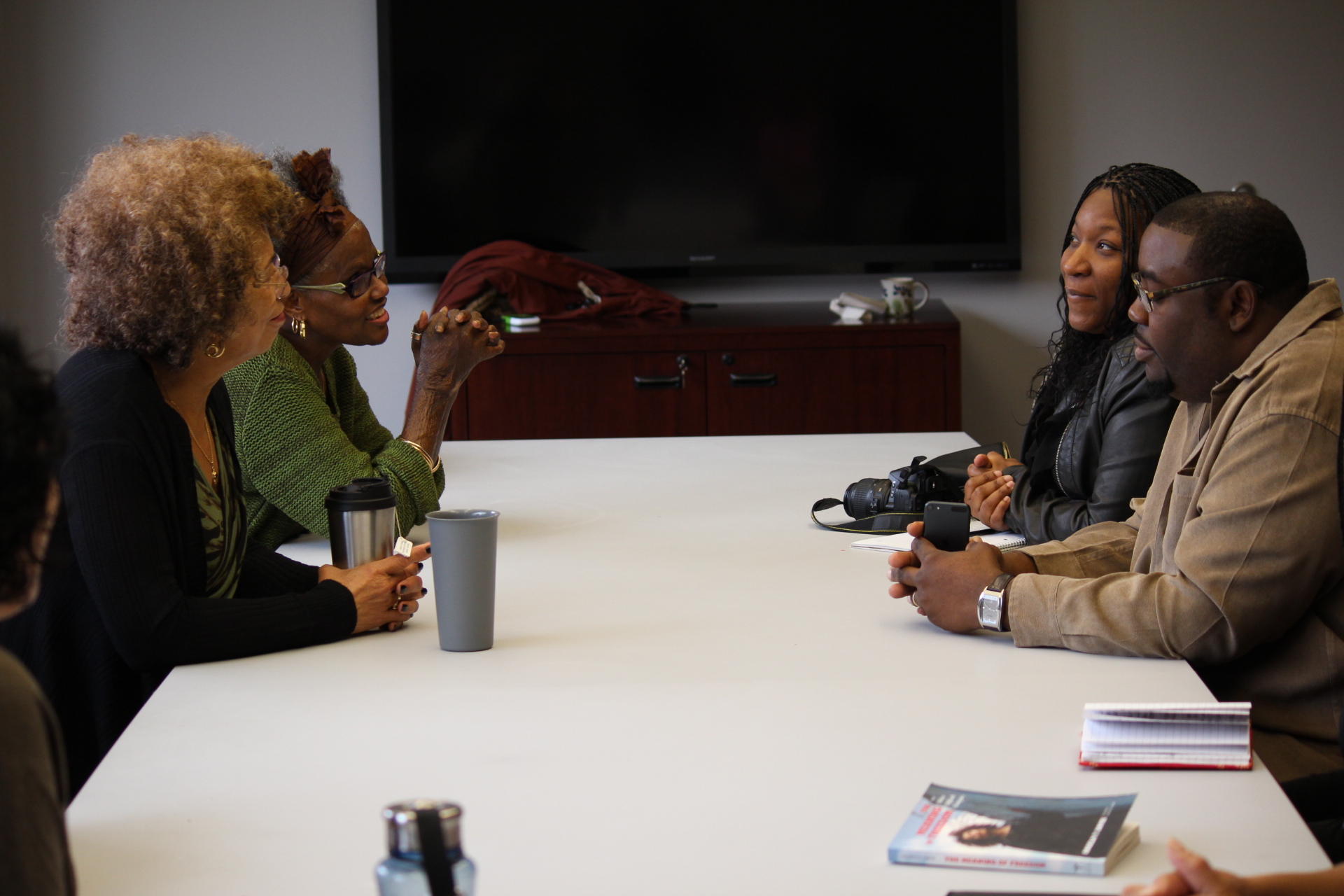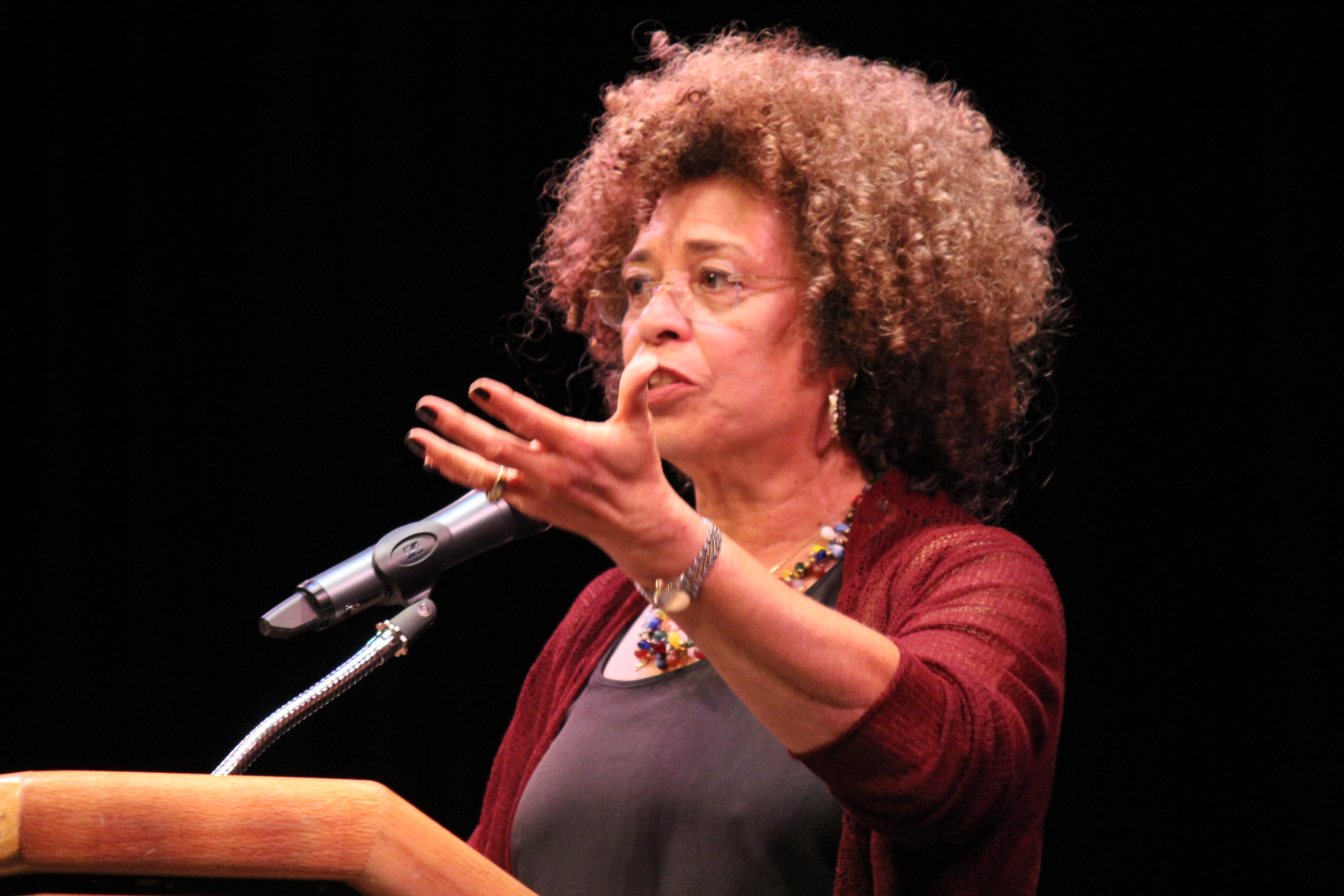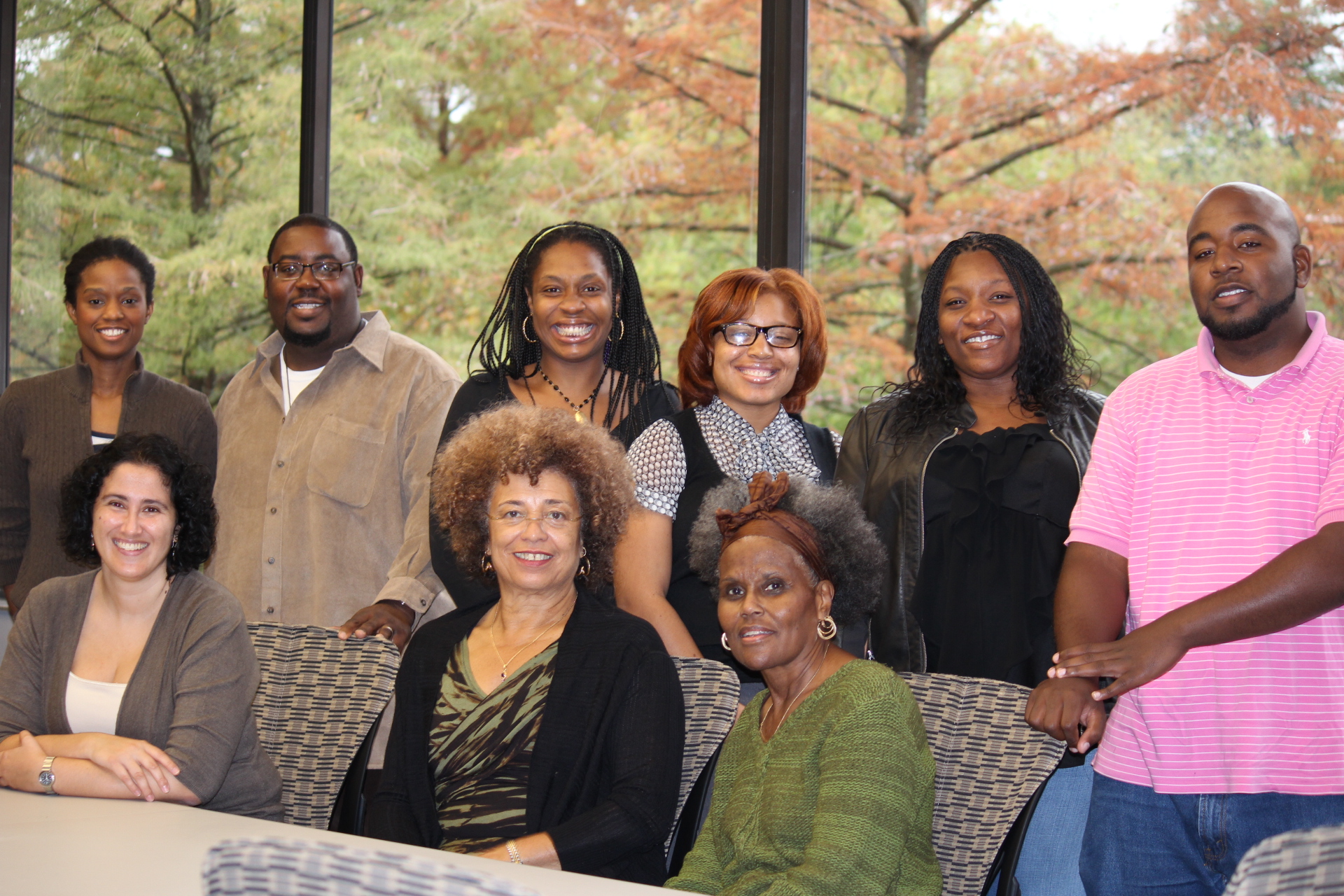I Discussed Social Issues with Angela Davis
This guest post is from Tracy Nash, a UALR student taking the “Black Women’s Activism and Literature” course.
On October 25, there was a full house inside the University Theatre in the Center for the Performing Arts. The diverse crowd buzzed with excitement while anticipating the lecture of the author, educator, and social justice activist, Dr. Angela Y. Davis.
She lectured on the topic “Race and Justice: The Consequences of Mass Incarceration.” I had been waiting on this moment since Dr. Laura Barrio-Vilar, the professor of my “Black Women’s Activism and Literature” class announced Davis will be coming to UALR.
When Davis walked onto the stage she was greeted with cheers and a standing ovation.
There were times during the lecture that I felt like I could have been at a church service. When she would make a key point, the crowd’s reaction would be laced with applause, along with shouts of “Amen” and “That’s Right!” I even heard a gentleman say “My God!”
In the meat of her discussion, she told the crowd that capital punishment evolved from the institution of slavery. If it had not had been for slavery, Davis is convinced that the death penalty would have been thrown into the dustbin of history a long, long time ago.
Dr. Davis spoke about people of color being disproportionately put to death; and when white people are put to death, a racist institution is also consuming their lives, because of the racist history of the death penalty.
Before diving into the talk about mass incarceration, she shared a quote by one of my favorite authors, Toni Morrison, saying, “If you are free, you need to free somebody else. The function of freedom is to free somebody else.” She feels we need to have a public conversation about mass incarceration (25 percent of the world’s incarcerated population is housed in the United States, although the U.S. only makes up five percent of the planet’s population). “Prison, she goes on to say, is an instantaneous solution without considering what gave rise to the problem. The incarceration process reproduces so many of the problems it pretends to solve. When people are being sent to prison, all we are doing is forgetting the social problems.”
Davis had so much more to say during her lecture, she even ran out of time and the audience encouraged her to keep speaking. Afterwards, she took time to sign books in the lobby of the theatre.
 Dr. Davis agreed to meet with our “Black Women’s Activism and Literature” class the next morning. I was excited and nervous to be face to face with such a historical icon.
Dr. Davis agreed to meet with our “Black Women’s Activism and Literature” class the next morning. I was excited and nervous to be face to face with such a historical icon.
Davis took the time to answer questions from each of my classmates. She shared a wealth of knowledge regarding race, gender, class, the Global Prison Industrial Complex, and economic exploitation with us.
Being able to listen to Davis during her lecture and later in face-to-face meeting reminded me of a quote by Mahatma Gandhi, “You must be the change that you wish to see in the world.”
I am glad that UALR presents opportunities such as this for its students and the community as a whole. We were all able to come together and listen to the words of Dr. Angela Davis, and then draw our own conclusions about those words.

